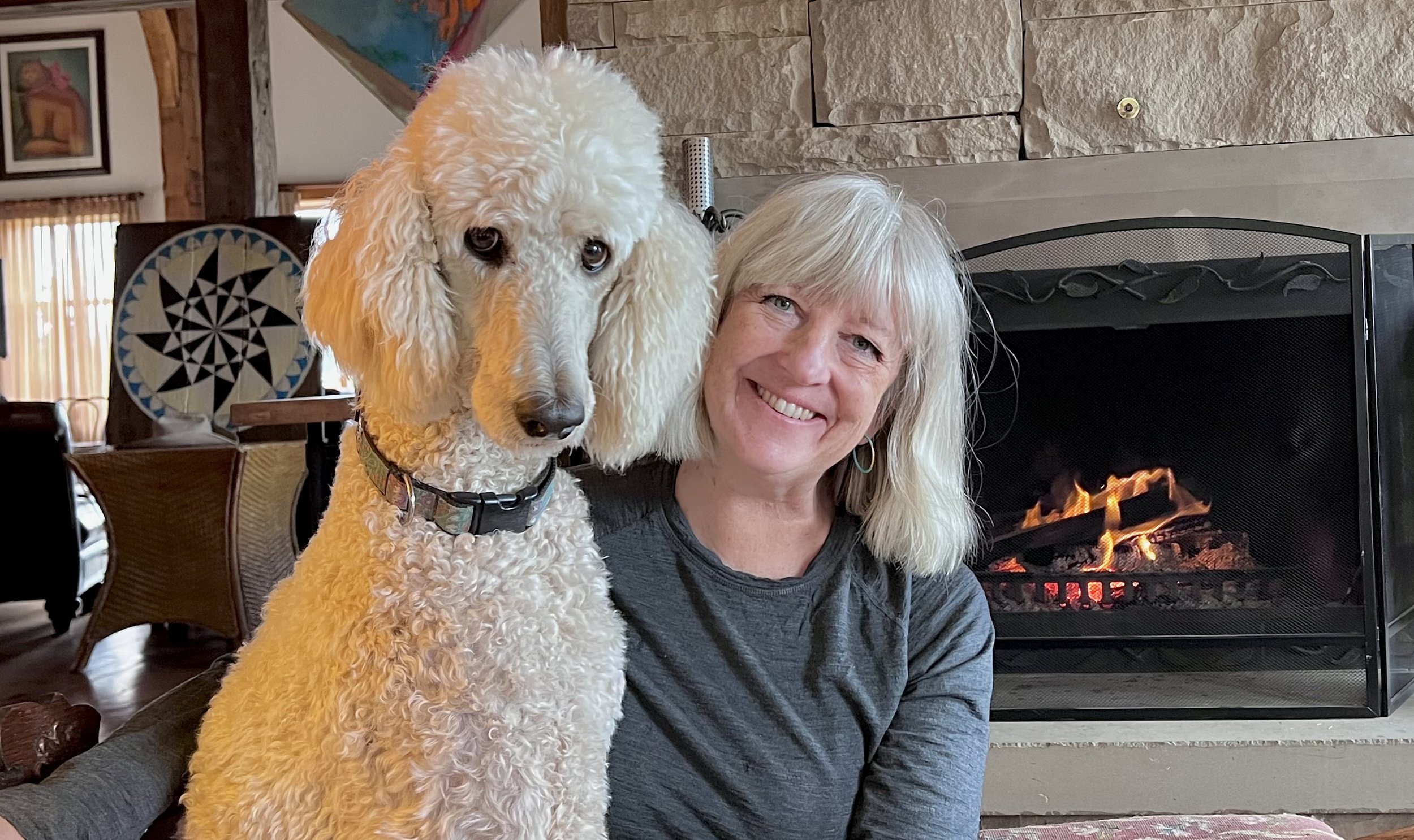A conversation with Dr Ania Kwasnik
How did you become involved in palliative medicine —
“Things evolved – shortly after moving here I learned that the oncology program at the Aberdeen Hospital needed someone to step in or we would lose our ability to administer chemotherapy here, myself and another physician stepped in. Each of us taking half a day a week from our own practice to assist with the program, which led to my involvement with cancer patients. Often when these patients no longer can carry on their trajectory of treatment they go on to palliative care. When I learned that Gerry Farrell (former director, palliative care physician) was thinking of retiring, I approached him. I am happy with my decision and cannot imagine not doing palliative care now. There is such satisfaction being able to give people quality care at the end of life. Dealing with people whose chemotherapy is no longer working for them and their disease is progressing, but they are still functioning and doing well, and still able to cope. Which is so nice that they can become part of PALS (www.pcpcares.org Palliative Support Group) for example, when they are still well enough to participate in something knowing that they have a life limiting illness but learning how to live with it in a better way. And being able to cope with that end-of-life illness.
I’d like to expand my role for people to understand that palliative care is a team effort and that we do community work and being able to approach it holistically, where we are helping the patients and their families. So, for them being able to make that transition in a way that they are not afraid but being able to master their fears in a way that makes it all more accepting where they can say, ‘I need to get on with my life in a way that's good for me now’, and being able to be truer to themselves and say ‘okay maybe this isn’t helping me anymore and I’m not making gains… I need to do stuff that is good for me and things I want to be doing, being closer to my family, I want to be able to connect with people I love and connect with people that are going to be helping me, and not necessarily in a hospital’. “
“My dream really is to establish this holistic approach to oncology and palliative care where there is a whole team – therapies including naturopaths, music, meditation, therapeutic touch, and others all under one roof. A place for people to connect if they wish to and talk about their fears. We are so fortunate that we have so many talents here already in place that we use, but to know that there are other ways to make ourselves feel better, it is not always medicine, it is often the human approach.
Existential distress is something we don’t know how to deal with in the medicalized system. If a patient has a spiritual person or someone that they can connect with, that’s fine, but if they don’t, and have no one they can go to, then we need to foster that and we need to be able to sit with somebody when they’re having that existential crisis and to sit with them when they’re going through what is next, what is the meaning of all this… how will I cope… This is where all the other modalities help.”
So what does a tough day look like—
“… when we see people too late, when we feel they have been going back and forth to see one specialist after the next and no one along the way has sat down with them and said, is this really how you want to deal with this for the rest of your life? And it is not until the very end when they have lost those opportunities to be with family, to do all those things they would like to have done. So, too often patients come in with unrealistic expectations, ‘I thought this was going to be a cure’ … maybe no one told them that in the first place but that was their expectation, and suddenly there is no cure and now it is like, ‘now what? What am I supposed to do?’ They fall apart and they are in emotional pain. This isn’t a good day for anyone. To the patient. To the families.”
A myth of Palliative Care as being the end—
“In Pictou County people don’t think of palliative care as the end because of its history. And they know that people are in (palliative) early, that it is support care - a team approach. Often, they do die, and that is what happens, but also, they go there to get better, and they go there because of the community team’s work. When those kinds of things are understood, palliative care is recognized as a source of support and not necessarily as a, oh my gosh this is the end of the road. Currently in medical schools, palliative care is becoming a compulsory course, there is more familiarity with it, so physicians are becoming more aware of the palliative care approach, and are having those conversations which are important, every step of the way and not just when a person is dying, but instead at the beginning of treatment the questions could be: how far do you want to go with your treatment? What are your goals? These conversations should be everywhere, with your primary care physician because they're the ones that know best. It’s hard to be a physician who does acute care management and you're in this I’m gonna fix this role, and at some point, you have to say, this isn’t going to get fixed, you need to focus on what else can we do to make this person feel better. Do we start considering other options that are going to make them symptomatically feel better, letting them live their life out knowing that this is happening and start getting some ability to deal with it, to cope with it in a way that is going to be more in line with their expectations and their goals.”
What are some of the positives coming out of the pandemic for palliative patients —
“That people have managed to make connections despite it all. The PALS group still checked in on people, they still called and still managed to make those contacts. Our therapeutic touch person found ways to connect virtually as well as our music therapist… these connections were so critical to people. It is knowing that we have more tools in our toolbox just really gives you the advantage that you can reach out in different ways to people, and every bit helps. So, knowing how important those family connections are, whereas before it was just a nice thing that was maybe available, but now we realize that this is also a critical part of patient care. Being able to connect with people you love isn't just something taken for granted.”
In your off-time, what are some of your favorite things to do—
“My day usually begins with walking my dogs, first thing in the morning, seeing them running and playing, getting fresh air, it’s pure joy. It is often in nature too, gardening, going for walks, for a swim at the beach… I have learned over time that I need to take breaks frequently. I do love what I do, but we all need a break. We have such a lovely team that they know this too, and they are great at recognizing when it is time to step away.
Favorite musician — “My daughter of course, Katie Kraw.” (https://katiekraw.com/home )
Favorite quote — Someone, somewhere, will say, Don’t do it. You don’t have what it takes to survive the wilderness. This is when you reach deep into your wild heart and remind yourself, I am the wilderness– Brené Brown
#palliative #palliativecare #holistic #palliativemedicine #NHPCW #community #pcpcares


